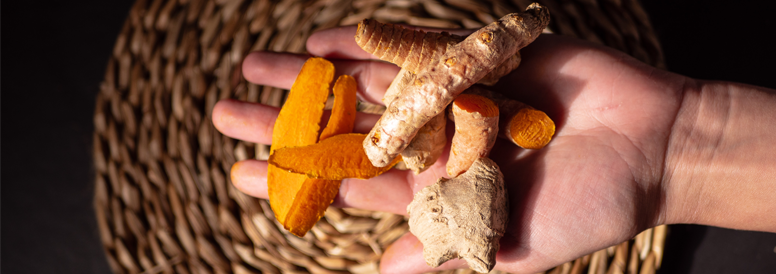Curcumin: The Ultimate Antioxidant
When we think of antioxidant supplements, curcumin might not be the first to come to mind – but maybe it should. Right now, there are more than 16,800 articles in PubMed that mention curcumin. The research is clear that curcumin supports health on virtually every level. One of the many reasons curcumin is healthy and beneficial is due to very high antioxidant activity. It’s not the only reason, but it’s one to consider when choosing daily supplementation.
Oxidation is a natural process constantly taking place in the human body. During this process highly-reactive molecules with unpaired electrons are created. These reactive oxygen species (ROS) need to be disarmed by antioxidants. Fortunately, there are an abundance of antioxidants in plant foods and dietary supplements.
In addition to ROS, oxidation produces other free radicals in the category of reactive nitrogen species (RNS) such as nitric oxide (NO). Clinical studies have shown that curcumin can help scavenge both ROS and RNS free radicals.The scientific literature is clear that one of the most powerful antioxidants is curcumin.
ORAC values are a simple way of measuring the antioxidant capacity of food substances. While this testing method does not take into account additional biological actions and effects which many foods and botanicals have on the human structure and physiology, we do know that consuming antioxidants daily is important to human health, and ORAC values help with comparisons. For example, astaxanthin tops the ORAC chart at a value of 28,222 per gram, triphala takes second place, and curcumin has a very high value of 15,000 which compares favorably to high quality green tea extract.
plays a significant role against oxidative stress. According to a 2007 review published in the journal Advances in Experimental Medicine and Biology, “the past few decades have witnessed intense research devoted to the antioxidant activity of curcumin.”
Both in vitro and in vivo studies have demonstrated that curcumin can reduce oxidative stress via the Nrf2-dependent antioxidant pathway.
According to the Linus Pauling Institute, “In addition to potentially direct antioxidant activity, curcumin can induce the expression of phase II antioxidant enzymes, including glutamate-cysteine ligase (GCL), the rate-limiting enzyme in glutathione synthesis.”
Curcumin also supports the activities of other important intracellular antioxidant enzymes such as superoxide dismutase and glutathione peroxidase.
It’s clear that curcumin has several key antioxidant mechanisms that can easily explain its potent health-supporting effects.
More recently, authors of a 2017 review published in the Journal of Food Quality state, “We conclude that the turmeric varieties investigated in this study are useful sources of natural antioxidants, which confer significant protection against “
It’s widely known that exercise is an oxidative event. In a 2017 randomized, double-blind, placebo-controlled trial published in the Asian Journal of Sports Medicine, curcumin supplementation had “positive effects on selected indices of exercise-induced oxidative stress possibly via promotion of antioxidant capacity.” In this study, participants took 90 mg of curcumin or a placebo for seven days prior to testing.
The take-away point is this: while clinicians may think of many other specific reasons to recommend , it’s helpful to remember that curcumin is also a potent antioxidant. It’s just another justification for including curcumin in your list of daily foundational supplements.

